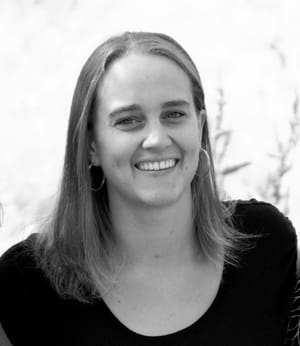In places like Hamilton, Ontario, and Grand Rapids, Michigan, we take summer really seriously. (For heaven’s sake, the ice on Lake Superior just finally melted!) It is, for many, a season of Sabbath, an opportunity to rest. So, while Comment is usually interested in faith and work, we asked some of our favourite writers and friends to tell us how they are working at rest this summer.
And we’d love to hear from you: How are you resting this summer? Join the conversation in comments below.
—James K.A. Smith, Editor
 |
Norman Wirzba is professor of theology and ecology and Duke Divinity School and author of Living the Sabbath:
For a long time I thought resting meant stopping. I now think this a bad idea. For example, I have rarely wanted to stop eating, especially when the food is good! Resting in the modes of “checking out” or “winding down” seems wrong to me. I am not looking for exits.
The opposite of rest is not activity but restlessness. That is, I need to rest so I can calm down and discern how the world around me is a place of so much beauty and grace. When I am restless, that usually means that I am unhappy with my life or my situation, wishing I had a better job, a nicer house, or friends who couldn’t stop praising me. Restlessness keeps me on the frantic move, constantly searching for what will finally establish me as the god of my world. Being frantic and ungrateful keeps me from sensing and appreciating where I am.
I think a better way to describe rest is to say that it is the time and the action in which gratitude and praise become inevitable. Rather than being a withdrawal from the world, rest represents a deep appreciation and immersion into the world as a place where so much good is at work and is yet possible. I rest best when I know that the people I am with are in a good personal place, and when the work I do is producing some good.
To come to rest in the world does not mean that I accept everything as it is. There is clearly too much pain, suffering, and injustice in it. And so resting has its accompaniment a commitment to work in ways that alleviate pain, minimize suffering, and correct injustice. To look at the world and see only its troubles is to abandon the goodness that is also there, and is more fundamental.
So this summer I am going to make the effort to enter into the grace of the world more deeply, say thank you, and celebrate the gift (among many) that my home and family are. I am going to prepare a good meal and raise a glass of fine wine, and in doing so acknowledge the love of God that is made delectable in each bite and sip. Maybe then my restlessness will be held in check, at least for a while.
 |
Jacqueline Melissen is the copy editor here at Comment and the mother to four daughters. She and a friend recently started a guilt-free parenting blog, twofunmoms.com:
I have four children under seven, so I don’t get a lot of rest these days. Even in the summer, small children need to be fed, washed, read to, changed, tucked in, refereed, entertained . . . rinse, repeat. We have a few summer trips planned but we’re taking the kids with us, so while these holidays will be wonderful family fun, they will be anything but restful. However, I do have a two-fold plan for getting just a little bit of that all-important physical and spiritual rest this summer.
First, I will take advantage of all the help I can get, and find opportunities for literal, actual rest. I’ll send the kids to play at Grandma’s for a few hours (or more), sleep in for an extra hour when my husband gets up for the morning kid rush, take a morning nap if the kids are miraculously all content at once. I’ll even put on an afternoon movie so I can sit on the couch while the baby naps, and I will try not to feel guilty about this, even if it’s a beautiful day and my house is a mess.
Second, I will look for opportunities to take a “Sabbath pause” any day of the week, to notice a brief respite from the daily chaos and use it for a second of reflection and thanks. When my hands are in dishwater and I’m listening to my husband laugh and talk with the kids as he gets them ready for bed, I’ll pause to be grateful for a partner who loves our family and who shares the workload. As I’m cooking dinner—before the daily discussion of exactly how many bites of it need to be eaten by whom—I’ll stop and think about the relative ease with which this meal was prepared and pray for those families who find meeting basic needs to be a constant worry. When my four-year-old interrupts me, again, to tell me the same enthusiastic story I’ve already heard a dozen times, I’ll fully stop what I’m doing to listen. I’ll think, with sincerity, “Oh my great God, this passionate, vibrant, hilarious, full-of-life little person is wanting most in the world to talk to me. What a tremendous gift.” And I’ll sit down and cuddle with her for a few moments of Sabbath rest before returning to my harried Tuesday afternoon.
 |
Kirstin Vander Giessen-Reitsma is the editor of catapult magazine, a bi-weekly online publication affiliated with the organization *culture is not optional (*cino):
It is 7:30 a.m. on a Thursday morning in July. While families on vacation sleep in at nearby lake cottages, resting up for a day of rest, I am placing an order for fair trade coffee so that it will arrive in time to caffeinate the 400-plus people who will be attending our huge summer festival next week.
It is 9:00 p.m. on a Tuesday evening. While eleven teachers from around the country settle into their week of quiet solitude at the rural retreat centre where I work, I am clearing dishes from our opening dinner, snapping photos for our Facebook page, and making a mental list of the tasks I simply cannot bring myself to do before I drive home and fall into bed.
It is 3:30 a.m. and, against the backdrop of my closed eyelids, a slideshow plays at a manic pace, ticking off everything I’ve forgotten to remember, including where to find the switch so I can shut this damn thing off.
What does rest look like for me this summer?
What does rest look like for me this summer? The hats I wear are stacked so high they block out the summer sun and cast a long shadow all the way to Labour Day. In between, the layers of faithfulness and unfaithfulness are so tightly packed that they are impossible to distinguish from one another.
These days, rest looks like getting caught behind a hay wagon dragging its load well below the speed limit, reminding me to ease up on the gas pedal and turn off the radio and let my body sink into the driver’s seat. It looks like pausing before I open the door on my way out of the house so I don’t disturb the chickadee perched on the railing in the delicate morning light. It looks like turning my face toward the open office window in appreciation of the cool breeze only to notice that our resident doe is crossing the path with her fawn on their daily pilgrimage for water and food.
These moments of rest are gifts that I receive with gratitude, and they are not enough.
 |
Marilyn McEntyre is a writer and professor of medical humanities at UC Davis and the UC Berkeley-UCSF Joint Medical Program.:
“In silence we take our rest.” This sentence concludes the chapter on “Silence” in my book Caring for Words in a Culture of Lies. For a person who speaks, teaches, and writes, silence is a Sabbath—a gift and a discipline. I have not managed to create the quasi-monastic semi-retirement I imagined in my more delusional moments, but have found exhilaration in the piecemeal work of part-time teaching, retreats, and workshops. In the midst of that exhilaration, deep, restorative silence beckons like a receding horizon. There are mornings, sometimes whole days, when I have the house to myself and say nothing to anyone. At the end of those days I realize what a gift silence is. I use it in various ways: sometimes I meditate and pray. Sometimes I clean out cupboards, setting the crockery down softly so as not to obscure the birdsong outside the window. Sometimes I light a candle while I make the evening meal or fold laundry. The writing I do on silent days surfaces from a deeper place, and evening conversations derive new energy from what has lain fallow for a few quiet hours.
Most of our travel these days is associated with work, though we recreate around the edges; week-long workshops at Lake Tahoe, for instance, are hardly a hardship assignment. At least for this year, “vacation” comes in two-hour, four-hour, occasional overnight “escapes” from occupations that are themselves mostly life-giving. I remember asking a remarkable doctor I worked with why he wasn’t taking a day off when the rest of the country was playing on July 4th. He said, “My work is play. When your work is play it’s a sign you’re doing the right thing.” Where choice is possible, finding work whose very demands refresh the spirit seems a good response to the command to “choose life.”
Still, I need Sabbath silence. In a novel I read so long ago I’ve forgotten its name a mother observes to her adult daughter, “My dear, you’ve missed so many opportunities to say nothing.” I recognize wryly how often I have missed those opportunities, and what grace may come in seizing more of them. The long companionable silences I share with my husband, the silence of a solitary afternoon, the silence of an empty church are places of rest where something opens and softens, the ambient atmosphere changes, and, when I listen, the Spirit speaks.



